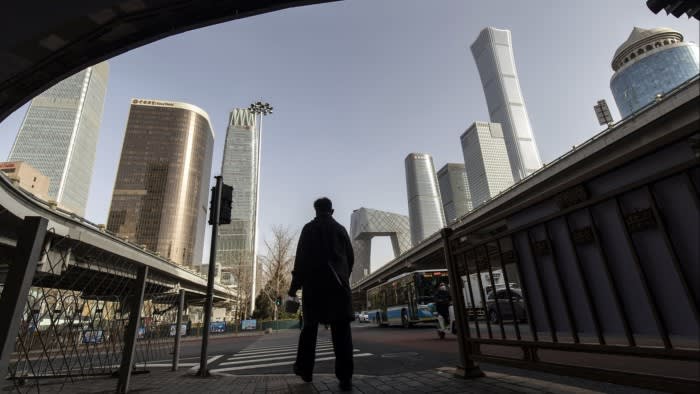Unlock Editor’s Digest for free
Roula Khalaf, editor-in-chief of the FT, selects her favourite stories in this weekly newsletter.
Given geopolitical tensions and slowing economic momentum, it’s a tough time to be in a position to do corporate social responsibility in mainland China. This week, an amendment to the country’s law is unlikely to make things any easier.
China’s updated Company Law, which takes effect Monday, expands the duties of boards of directors and “imposes additional liabilities on directors, supervisors and executives,” according to a briefing from law firm Squire Patton Boggs. More broadly, it also has implications for capital injections, shareholder rights and liquidations. The new law is intended to further reduce the conflicts of interest and misappropriation of capital sometimes associated with China’s rapidly evolving and expansive corporate landscape.
But in an environment of policy uncertainty, potential directors, roles that are often unpaid except for expenses in China, are thinking twice. “It’s always been a bit tricky to get people to agree to be officers or directors of Chinese companies, particularly joint ventures,” said Daniel Roules, a partner at Squire Patton Boggs in Shanghai. “With the changes in the law, we’re seeing more reluctance.”
The amendments are nevertheless a sign of Beijing’s willingness to move to an “international practice,” Roules adds. They are part of a long-term shift that dates back to the emergence of the private sector from a still-relevant communist model.
“Things have really changed,” says Stephane Grand, president of consultancy SJ Grand Financial and Tax Advisory and a member of a European Commission programme on corporate governance in Beijing 20 years ago. “Contracts are much more reliable than they were [then].”
As the system continues to evolve, however, practices that were previously routine or overlooked become much more vulnerable. One example emerged last week, when two employees left Adidas after an investigation into an anonymous whistleblower alleged that senior staff in China received kickbacks.
The amended law means that some small companies will no longer need directors. But it will also require them to act in the best interests of the company, closely monitor capital injections when a company is formed and potentially make them liable for a company’s losses if capital is withdrawn illegally by shareholders, according to Squire Patton Boggs. Lawyers say management should also take this into account. In China, the broad scope of the regulations can make it difficult to determine what has changed compared to previous laws and how it will be implemented.
“You don’t know how things are being applied until six months to a year after the regulation goes into effect,” Grand says. Officials are wary of misapplying a regulation, he adds, and so may apply it rigidly.
The risks of top-down pushes to achieve official goals are well understood in China. In the 18th century, the writer Pu Songling depicted a satirical world in which the emperor’s obsession with cricket fighting trickles down through the ranks. The protagonist, much to his misfortune, is appointed village chief, meaning it is his responsibility to collect the insects or risk punishment.
For current corporate directors, accountability may also be something they want to avoid. The broader political environment in China, including the emphasis on anti-corruption under Xi Jinping’s third term, has contributed to a sense of caution in the private sector.
For any potential foreign executive, these problems are compounded by the mood in the US, where a select committee in Washington is keeping a close eye on American companies. Multinationals, given the geopolitical pressure on supply chains, may now be more eager to launch internal investigations to preemptively prevent signs of misconduct from emerging on the mainland. Their activities there will in many ways mirror the practices of a corporate culture that often clashes with conventions in the Pacific.
Despite these geopolitical tensions, China’s legislative changes are a notable reminder that there is still a shift toward international standards in certain areas. But in the specific case of directors, they also underscore an environment in which the risks of responsibility are often seen as greater than the rewards.
“Many people who are currently financial supervisors of companies, [or] “Executives are trying to get out of their jobs,” Grand says.
thomas.hale@ft.com
